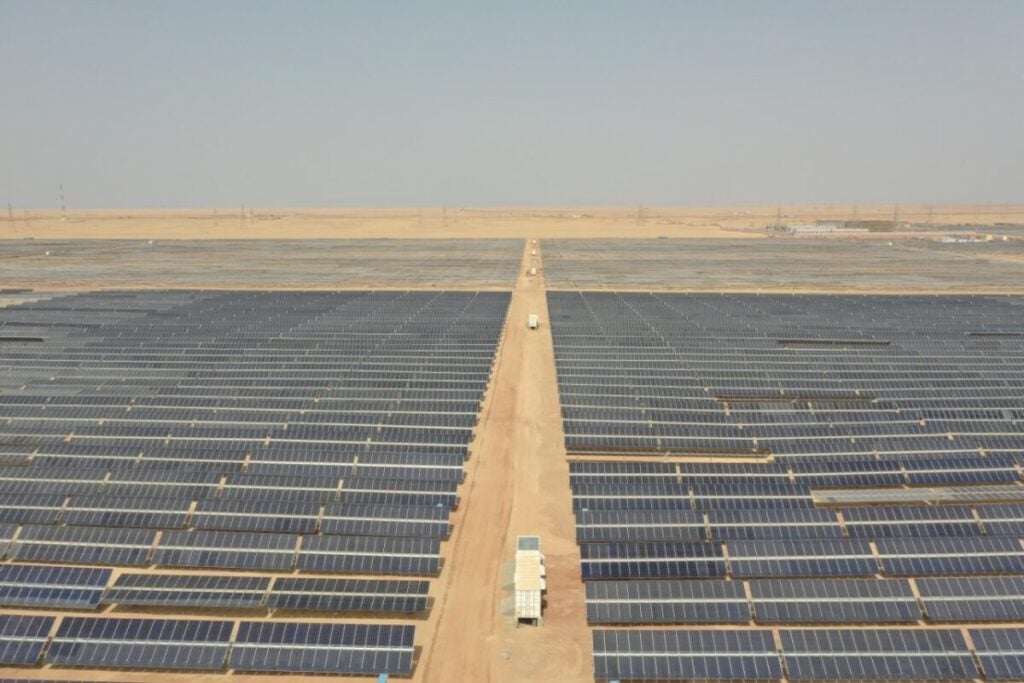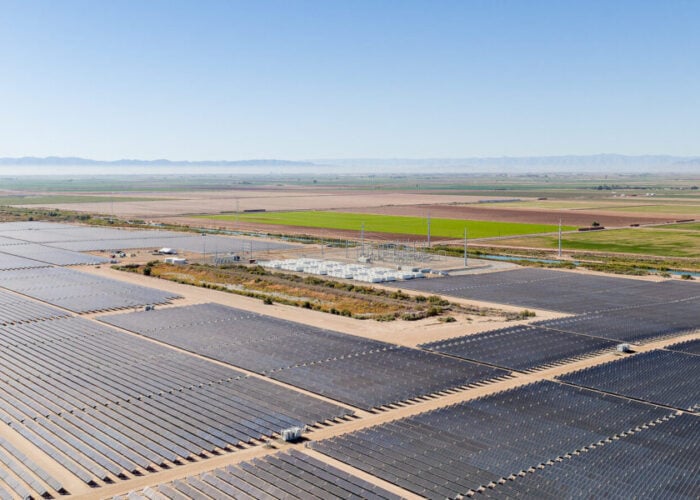
Independent power producer (IPP) Scatec has been awarded by the Department of Electricity and Energy (DEE) in South Africa for a 846MW solar cluster in the seventh round of the Renewable Energy Independent Power Producer Procurement Programme (REIPPPP).
The Kroonstad PV cluster, located in the Free State province, will comprise three solar plants, Oslaagte Solar 2 and Oslaagte Solar 3, each with a capacity of 293MW, and Leeuwspruit Solar, with a capacity of 260MW.
Try Premium for just $1
- Full premium access for the first month at only $1
- Converts to an annual rate after 30 days unless cancelled
- Cancel anytime during the trial period
Premium Benefits
- Expert industry analysis and interviews
- Digital access to PV Tech Power journal
- Exclusive event discounts
Or get the full Premium subscription right away
Or continue reading this article for free
The project will cost approximately ZAR13 billion (US$735 million), 90% of which will be raised through non-recourse project debt, while the remaining is funded by equity from the owners. The company is expected to reach financial close in 2026, with construction beginning shortly after.
The Norway-headquartered company will own 50.90% of the project, while renewable energy platform Greenstreet and Redstreet will own 46.50%. The remaining 2.6% will be held by a Community Trust. Additionally, Scatec will provide engineering, procurement, and construction (EPC), operations and maintenance (O&M), and asset management (AM) services for the PV plants.
The government reallocated a portion of the renewable energy capacity originally designated for onshore wind under the seventh bid window to solar PV projects. Upon commencement, the projects will deliver clean energy under long-term power purchase agreements (PPAs) spanning about 20 years.
Established in 2007, Scatec has a portfolio of 6.2GW in operation and under construction across five continents. Recently, Scatec raised US$479 million for its 1.1GW/200MWh solar-plus-storage Obelisk project in Egypt. The funding was provided by the European Bank for Reconstruction and Development (EBRD), African Development Bank (AfDB), and British International Investment (BII). The project cost totalled to US$590 million, of which around 80% has been secured through financing.






